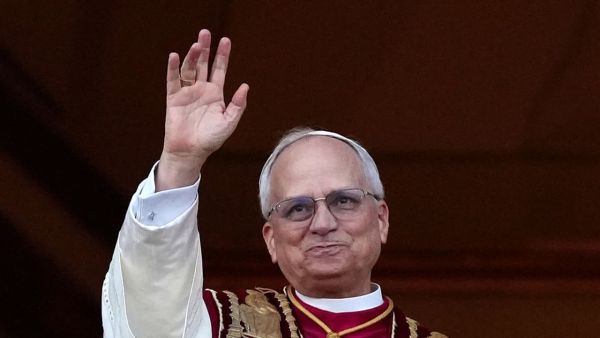
Vatican City: In his first interview since becoming the Catholic Church’s first American pontiff, Pope Leo XIV said he has no plans to step into partisan debates in the United States. He further emphasized that he would continue to speak out on matters central to the Church’s mission, especially migration. Reflecting on US politics, Pope Leo said he was aware of America’s global influence and recalled the letter his predecessor, Pope Francis, sent to American bishops earlier this year criticizing the Trump administration’s mass deportation programme. The letter, which specifically challenged Vice President JD Vance’s theological justification for the programme, was praised by Pope Leo. "US bishops had shown courage in confronting the policy. I have not yet met President Trump personally. In one of my final conversations with the US vice president, I spoke about the importance of human dignity and urged that policies respect people regardless of their birthplace,” he said.

The Pope reiterated that while he intends to avoid partisan entanglements, he will not remain silent on matters where the Church has a moral responsibility to speak, including immigration, human dignity, and justice for victims of abuse. The interview was conducted by Elise Ann Allen of Crux and published on September 18, 2025.
When asked about inclusion of people identifying as LGBTQIA+, Pope Leo stressed that the Church’s starting point should be a change in attitudes rather than doctrine. Pope Leo stressed that the Church teaches that all people, including those who identify as homosexual, must be treated with dignity, even though it does not recognise same-sex marriage and continues to define marriage as a union between a man and a woman. “I don’t invite people in because of their identity,” he said. “I invite them in because they are sons and daughters of God.” Pope Leo’s predecessor, Pope Francis, often made global headlines with his positive outlook on queer individuals during his papacy. He stressed that people should not be marginalized for their sexual orientation but welcomed into society. However, his declaration of gender-affirming surgery as a grave violation of human dignity had upset some community members. While the Catholic Church continues to teach that homosexual activity is “intrinsically disordered,” it also insists queer individuals must be treated with respect and without discrimination.
On ties with Beijing, the Pope said he does not anticipate immediate changes to the Vatican’s 2018 accord with China over the appointment of bishops. That deal, brokered under Pope Francis, was intended to bridge the long-standing divide between the state-approved Catholic Church in China and the underground church loyal to Rome. While critics have accused the Vatican of compromising too much, Pope Leo said he is still studying the issue and consulting with Chinese Catholics from both sides, acknowledging he does not presume to have greater wisdom than those who negotiated before him. Human Rights Watch (HRW) had urged Pope Leo to review the Vatican's 2018 agreement with the Chinese government, which gives Beijing significant control over the appointment of Catholic bishops. The human rights group also criticised the Chinese government for continuing to install Communist Party-aligned clergy while cracking down on underground churches, clergy, and worshipers.
The new Pope also addressed the clergy sexual abuse scandals, acknowledging that the crisis remains unresolved and continues to cause deep pain to victims. He insisted that victims must be heard, pointing out that research shows the vast majority of survivors speak truthfully about their abuse. At the same time, he said the rights of accused priests should not be ignored, as there have been cases where false allegations have ruined lives. While he has been credited with helping survivors of an abusive Peruvian group pursue justice, some advocates have argued he could have done more for other victims in Peru. He stressed that while the crisis must be dealt with directly, it should not dominate the entire mission of the Church.